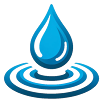Navigating the Social Media Landscape: A Closer Look at Three Titans
- Get link
- X
- Other Apps
Facebook: The Pioneer of Social Networking
Advantages:
Massive User Base: With over 2.8 billion monthly active users, Facebook remains the largest social media platform, offering unparalleled reach for individuals and businesses alike.
Diverse Features: From personal profiles and groups to business pages and marketplace, Facebook provides a plethora of features catering to various purposes, including networking, marketing, and entertainment.
Targeted Advertising: Facebook's sophisticated advertising tools allow businesses to precisely target their desired audience based on demographics, interests, and behavior, maximizing the effectiveness of marketing campaigns.
Disadvantages:
Privacy Concerns: Facebook has faced numerous controversies regarding user privacy and data handling practices, raising concerns about the misuse of personal information and potential breaches.
Algorithmic Changes: The platform's ever-evolving algorithms often pose challenges for content creators and businesses, as changes in visibility and reach can significantly impact engagement and organic reach.
Content Overload: With a constant influx of content from friends, pages, and ads, users may feel overwhelmed and struggle to filter through the noise to find meaningful interactions and valuable content.
Instagram: Visual Storytelling Redefined
Advantages:
Visual Appeal: Instagram's emphasis on visual content, such as photos and videos, makes it an ideal platform for creative expression, storytelling, and brand promotion through captivating imagery.
Engagement Opportunities: Features like Stories, Reels, and IGTV foster engagement and interaction among users, enabling brands and individuals to connect with their audience in more dynamic and immersive ways.
Influencer Marketing: Instagram's influencer culture has created lucrative opportunities for brands to collaborate with influencers and leverage their reach and influence to promote products and services authentically.
Disadvantages:
Pressure for Perfection: The platform's focus on curated and aesthetically pleasing content can contribute to feelings of inadequacy and self-comparison among users, leading to issues related to mental health and self-esteem.
Algorithmic Opacity: Similar to Facebook, Instagram's algorithms often remain opaque, making it challenging for users to understand how content visibility is determined and potentially limiting organic reach for content creators.
Content Authenticity: The prevalence of filtered and staged content on Instagram raises concerns about authenticity and transparency, as users may struggle to differentiate between genuine experiences and carefully crafted narratives.
Twitter: The Power of Concise Communication
Advantages:
Real-Time Updates: Twitter's micro-blogging format facilitates instant communication and enables users to stay informed about news, trends, and events as they unfold in real-time.
Global Reach: With its global user base and viral nature, Twitter offers unparalleled reach and amplification potential, allowing users to share their thoughts and content with audiences worldwide.
Engagement and Networking: Twitter's open and conversational nature fosters engagement and networking opportunities, enabling users to connect with like-minded individuals, participate in discussions, and build relationships.
Disadvantages:
Character Limitations: The platform's 280-character limit can be restrictive for users looking to express complex ideas or thoughts, often leading to oversimplification or fragmented communication.
Echo Chambers: Twitter's algorithmic timeline and tendency for users to follow like-minded individuals can create echo chambers, reinforcing existing beliefs and limiting exposure to diverse perspectives.
Misinformation and Toxicity: The platform's open nature also makes it susceptible to misinformation, trolling, and toxic behavior, posing challenges for users and moderators in maintaining a healthy and constructive online environment.
In conclusion, while Facebook, Instagram, and Twitter each offer unique advantages and opportunities for users and businesses, they also present distinct challenges and drawbacks. Understanding these nuances is essential for navigating the social media landscape effectively and leveraging these platforms to their fullest potential while mitigating potential risks and pitfalls. Whether you're seeking to connect with friends, promote your brand, or stay informed about the latest trends, choosing the right platform and approach is key to achieving your goals in the digital realm.
- Get link
- X
- Other Apps



Comments
Post a Comment